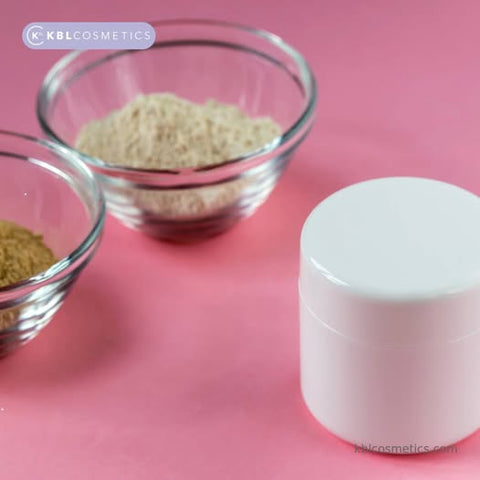Understanding active ingredients in private label cosmetics is essential for anyone interested in creating effective cosmetic products. These substances are responsible for targeting specific skin concerns such as dryness, acne, hyperpigmentation, or aging. From alpha-hydroxy acids to vitamin C and salicylic acid, the beauty industry continues to explore powerful ingredients in skin care that promote skin renewal, soothe sensitive skin, and improve overall skin health.
What are active and inactive ingredients
Active ingredients are the components that directly address skin issues, while inactive ingredients serve as carriers, stabilizers, or support agents within cosmetic formulations. In contract manufacturing, both types are carefully evaluated for their safety and compatibility. Ingredients like zinc oxide and titanium dioxide help protect against UV radiation, while olive oil and petroleum jelly help reinforce the skin barrier and improve the skin's texture.
Popular ingredients in skincare products
Many skincare products contain ingredients recognized for their proven benefits. These active skincare ingredients can improve concerns such as acne-prone skin, uneven skin tone, and dry skin. Key examples include:
Hyaluronic acid: Known for its hydrating properties, it helps keep the skin surface moisturized and supports the protective barrier.
Vitamin C (ascorbic acid, L-ascorbic acid): An antioxidant-rich vitamin that helps prevent environmental damage and boosts collagen production.
Salicylic acid: A beta-hydroxy acid that penetrates pores to remove dead skin cells and reduce clogged pores.
Glycolic acid and lactic acid: Alpha hydroxy acids that enhance cell turnover and improve overall skin texture.
Niacinamide (vitamin B3): Reduces the appearance of pores, improves skin tone, and soothes inflamed skin.
Ingredient benefits based on skin type
Selecting the right ingredients in skincare products requires understanding skin type. Oily skin may benefit from ingredients like zinc oxide and salicylic acid, which help control oil production and combat acne. Dry skin responds well to ingredients such as hyaluronic acid and aloe vera, which enhance skin hydration. Combination skin needs a balanced approach using gentle acids like lactic acid. For sensitive skin types, ingredients such as centella asiatica extract and calendula officinalis flower extract offer anti-inflammatory properties and minimize the risk of skin irritation.
Topical antioxidants and anti-aging actives
Topical antioxidants such as vitamin E, vitamin A derivative, and vitamin C help protect against radical damage caused by environmental stressors. These antioxidants are used to minimize the appearance of wrinkles, uneven skin tone, and hyperpigmentation. Kojic acid, azelaic acid, malic acid, and retinoic acid are often used to promote collagen synthesis and support skin renewal. These actives are also effective in maintaining glowy skin when included in a morning skincare routine, especially for those exposed to environmental aggressors or UV radiation.
Peptides, botanicals, and essential oils
Peptides, including copper peptide and chains of amino acids, help support collagen production and skin firmness. Natural peptides and biometric peptides are frequently used in cosmetic products for their anti-aging and hydrating effects. Botanical ingredients such as centella asiatica extract, calendula officinalis flower extract, cold-pressed blueberry extract, and glabra root extract offer antioxidant and antimicrobial properties. Oils such as chinensis seed oil and annuus seed oil, along with fruit oil and fruit water, also support skin hydration and protect the skin barrier.
Common reactions and usage guidelines
While many ingredients in skincare are beneficial, some may cause irritation or sensitivity, especially for acne-prone skin or inflamed skin. It's important to introduce active ingredients gradually and monitor for issues like allergic contact dermatitis or reactions on damp skin. Exfoliants such as alpha hydroxy acids can increase sun sensitivity, so they should be used with care and followed by sun protection. Proper topical application and attention to the stratum corneum can help prevent skin damage and enhance the effectiveness in skin care. A balanced use of counter products can minimize clogged pores, enlarged pores, or other side effects.
Please contact us to get started with your cosmetic product development.
